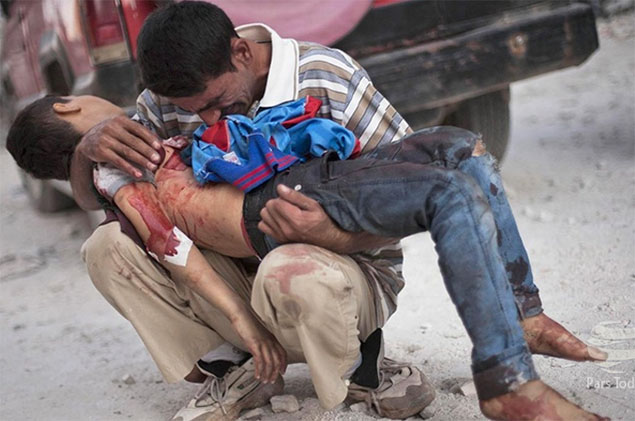Yemeni war as entered into its fourth year with more than 10,000 people killed and pushed the country to the brink of famine. Yemen has long been the poorest country in the Arab world, with limited arable land and water resources. Although it has some oil but this resource never made the country rich and is likely to be depleted in the near future. The current ongoing conflict and blockade imposed by the Saudi-led coalition has worsen the conditions. Now more than 22.2 million people in Yemen require humanitarian assistance, including 3 million people in acute need who urgently require assistance to survive according to the United Nations. An around 18 million people, which accounts for more than 60 percent of the total population of the country are food insecure while an estimated 16 million people lack access to safe drinking water and sanitation. In addition to this intensive bombing of civilian infrastructure, including water and sewer systems has resulted in the worst cholera outbreak of recent time. These facts clearly illustrate magnitude of humanitarian crisis Yemen is going through.
In addition to the worst humanitarian crisis Yemen is also witnessing growing influence of Al-Qaeda & ISIS and separatist movements. The current ongoing conflict in Yemen has offered terrorist groups – namely Al Qaida in the Arabian Peninsula (AQAP) and ISIS lawless territory to exploit and opportunities to recruit from the Yemeni masses afflicted by a humanitarian catastrophe. AQAP still maintains a presence in the central and northern cities of Ataq, Shabwah, al Bayda and Hadramat, with its leadership based in the urban areas of Ma’arib. Islamic State also have strong network and sleeper cells in the country. Both Al-Qaeda and ISIS have exploited the conflict and the collapse of government authority to gain new recruits and allies and expand their influence. Yemen has suffered from regionalism as well with the southern part of the country an independent state for 23 years never very happy with its 1990 union with the north, which even led to a short-lived civil war in 1994. Now the groups like Southern Transition Council (STC) are encouraging this feeling of separatism. STC not only declared its opposition to the President Hadi, Aden based government, but it also advocates for the re-division of Yemen into two separate states, north and south. It’s being suspected that the transition council is getting support from UAE.
At this point in time Yemen is going through its worst and most difficult phase. Yemen’s survival as a unified country appears in doubt as its faces numerous challenges. But the consequences of Yemen collapsing are dire a failing Yemen would entail half of the 23 million population seeking asylum in neighbouring countries. Going forward this will become a significant problem for neighbouring countries. Yemen’s collapsing state will also hold negative implications for international maritime trade, as the conflict is occurring near a major trading artery for the global economy, the Suez Canal-Red Sea shipping lane, and for regional security for countries on both sides of the Red Sea, including Saudi Arabia and the Gulf of Aden.
Yemen’s problems are not confined to its borders, a regional approach should be employed to resolve the Yemeni crisis. First of all, immediate ceasefire ending all foreign military attacks is very much required. After the ceasefire is in place and being observed by every party to the conflict humanitarian assistance can be started for the needy people. Later on, broad national dialogue can be conveyed through this dialogue, the establishment of an inclusive unity government can be achieved. The Sultanate of Oman, which has refused to take sides in the conflict, could act as a broker, much like it did in the run-up to the Iran nuclear talks can convey this type of national dialogue. The aim of such talks could be to establish a federal state, as first proposed during the National Dialogue of 2013-2014. A successful deal would balance the grievances and worries of the Northern Zaydi tribes and of the Southern and Eastern tribes. This deal should put forth a system of obligatory power sharing, as domination of the federal government by one tribal alliance would quickly lead to a new conflict, as history has proven. With the strengthening of the state and its institutions much attention can be given on elimination of Al-Qaeda and ISIS. It should be understood that peaceful and stable Yemen is not only in interest of Yemenis but also in interest of neighbouring countries and region at large.
Home » Opinion » Let Yemen Survive
Let Yemen Survive
| Manish Rai

